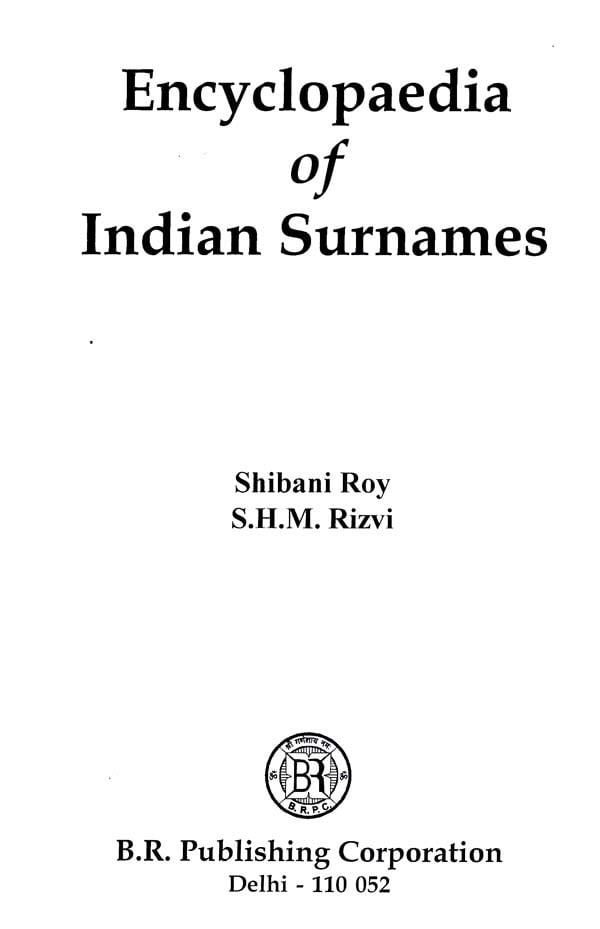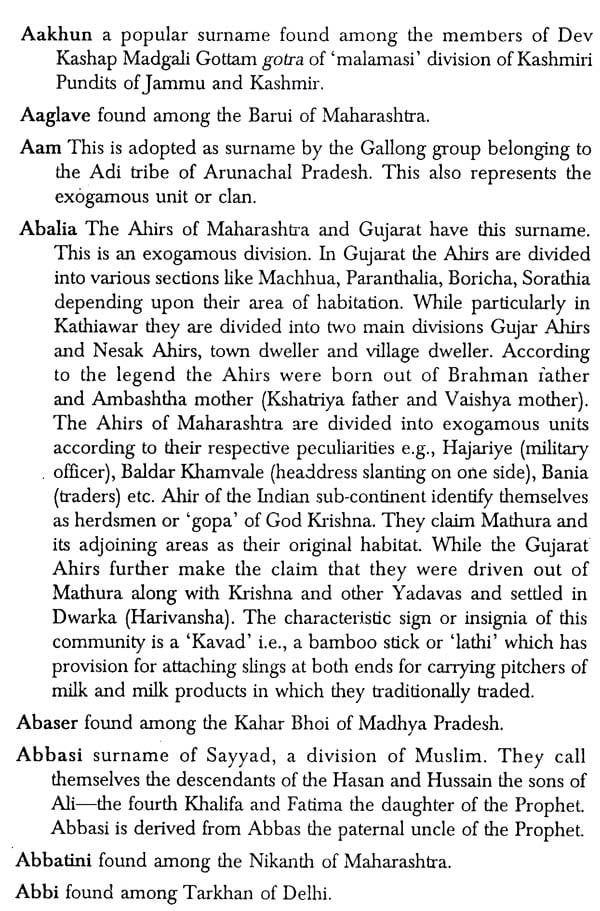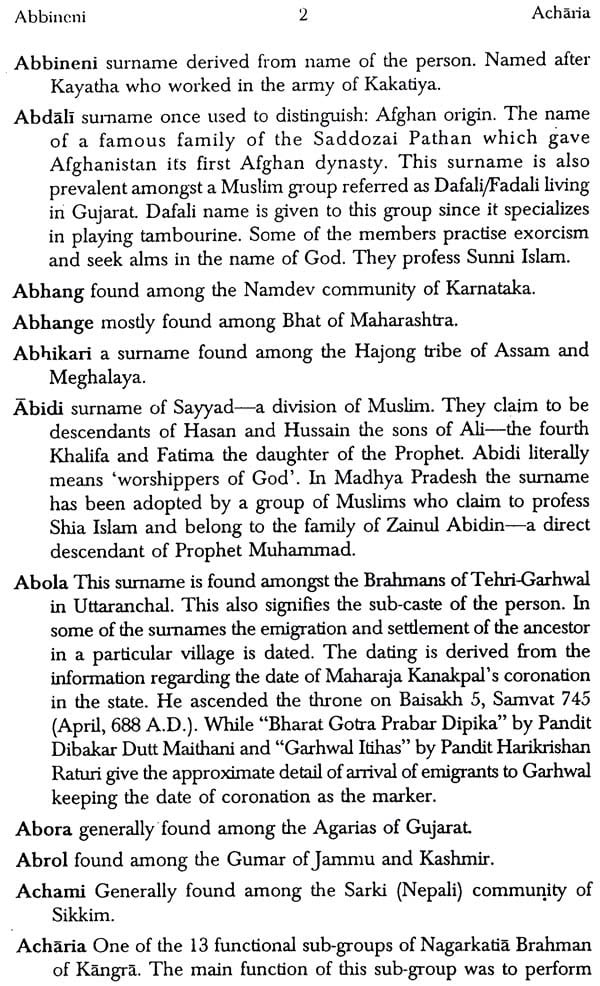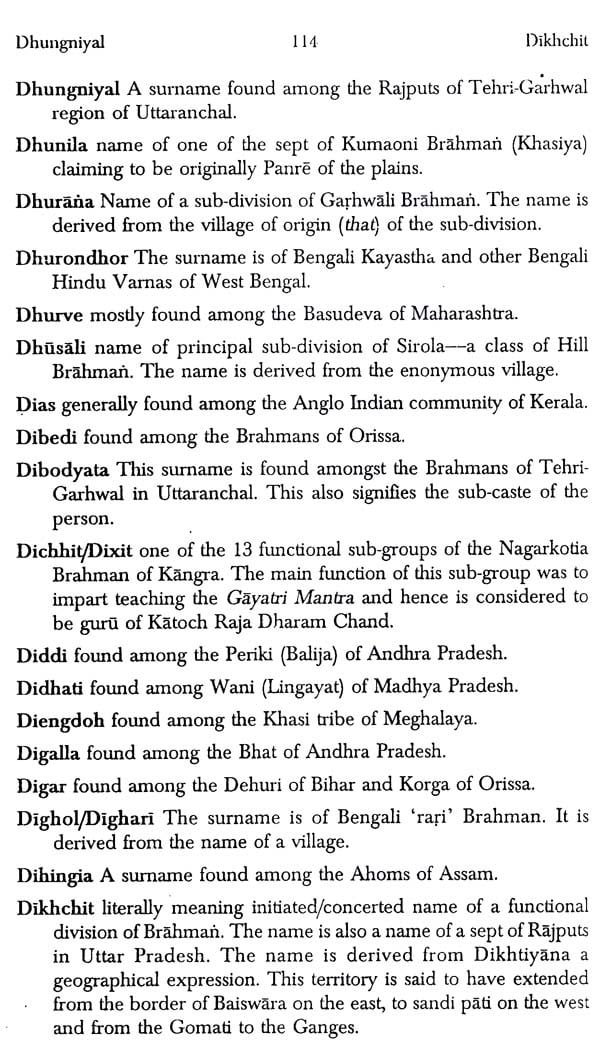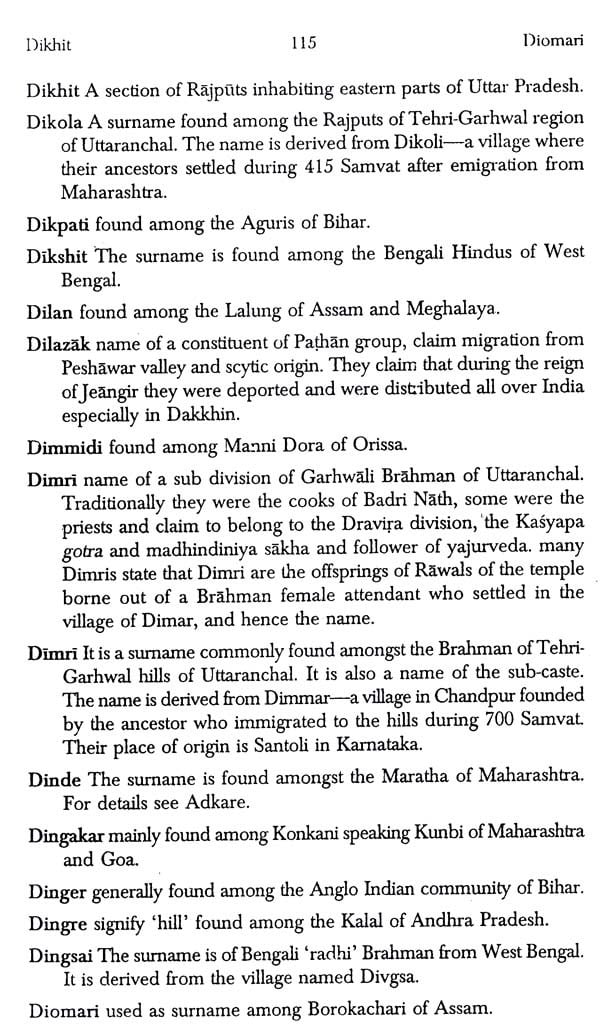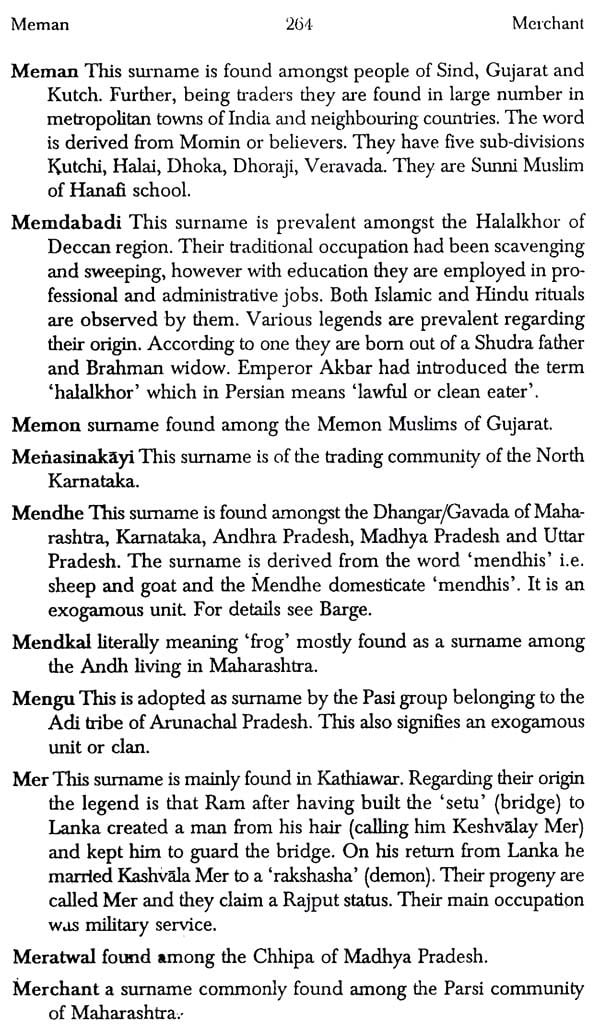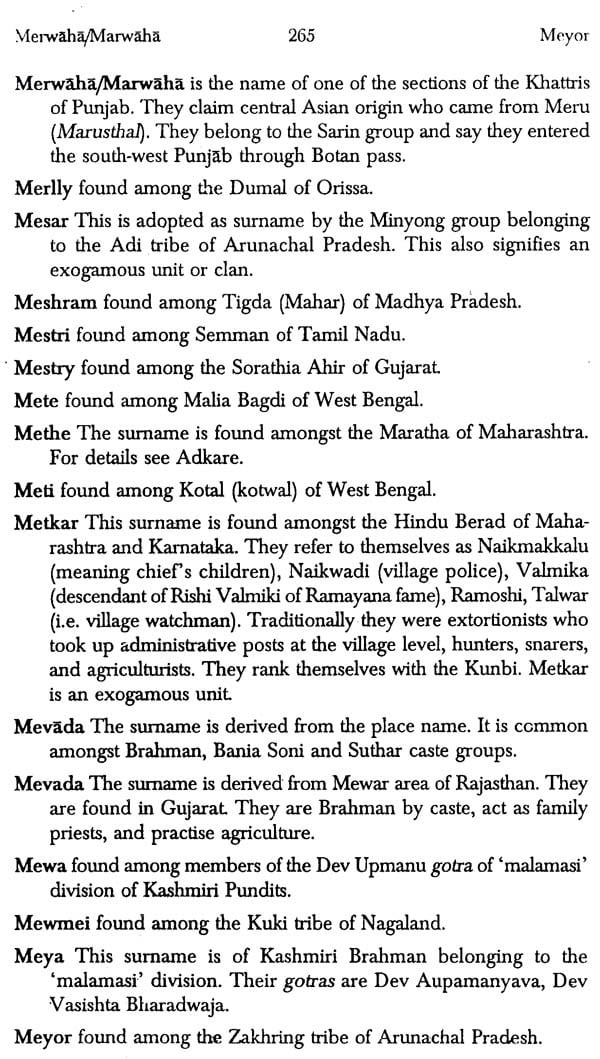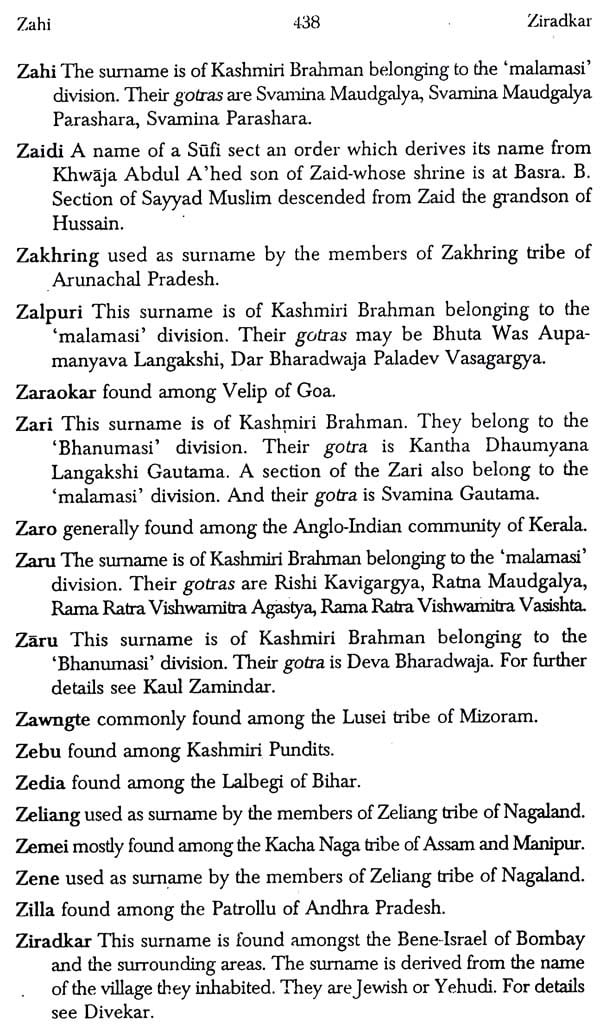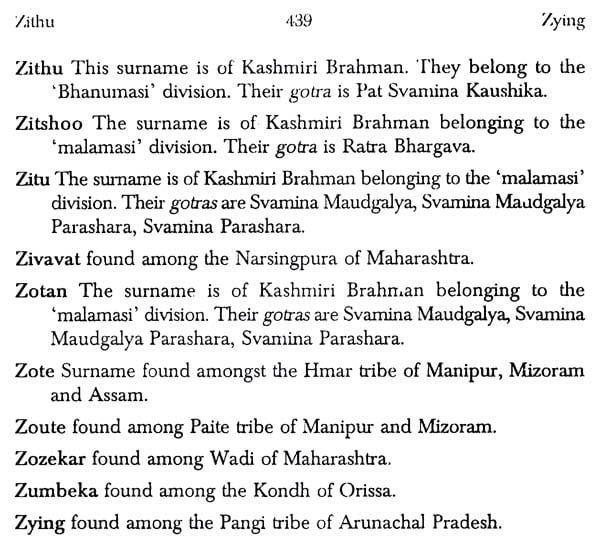About the Book India is a home of almost all major religions of the world and Indian system of name giving is considered to be highly specialized. Besides bestowing a personal name to an individual, a surname is suffixed or prefixed in order to assign membership of cohesive group. This surname may be a totemic name representing a lineage, a clan, portray, a descent but reflective of individual's socio-religious standing within the group, In the book Encyclopedia of Indian Surnames all attempts have been made to collect the genesis of the surnames from different regions and groups of people of India. The collection of such information is spread over more than twenty years of consistent efforts demanding to deal with a large body of data and material beside, sifting from available literature to collect the information desired for preparing the compendium.
In dealing with a large body of literature and material, errors and omissions are unavoidable. Information, suggestions, observations, criticisms and advice are welcome from our enlightened readers.
About the Author Shibani Roy, Ph.D. (Delhi) is a field work oriented researcher who, since 1969 is unabatedly conducting anthropological investigations among various ethnic groups spread from coastal Gujarat to inaccessible and inhospitable rugged terrain of north-eastern India-the abode of diverse and distinct tribes. The empirical data collected from rigorous, painstaking, time consuming and labor intensive field work, when analyzed in the context of contemporary social situation, gave shape to many treatises when proved to be milestones in Indian Anthropology. Her well researched books on Anthropology have been well received by the reviewers, critics and laymen too. Her more than 50 research papers published in Indian and Foreign Journals encompass the holistic approach in understanding Man and his bio-cultural behavior. Side Hasan Mujtaba Rizvi, Ph.D. (Delhi) trained in Physical Anthropology at Universities of Saugar and Delhi has received training in Method and Techniques in Human Cytogenetics and DNA Polymorphism, remains engaged in anthropological research since 1969. A fervent advocate of holistic tradition in Anthropological Research, he has blended the physical aspect of Man in such a fashion that the fusion has become the hallmark of his more than three decades of research.
He has been closely associated with Dr. Shibani Roy and has been co-author too of many treatises, they as a team, wrote in the span of more than three decades. His book on Mina-A Ruling Tribe of Rajasthan was the pioneer study in Social Biology of the largest tribe of Rajasthan.
Preface When we began the work that took the shape as the compendium of Indian surnames, we were plunging into the ocean of lexicography without having been taught to swim. The concept of a physical world is dotted with name of even minutest part of an atom and molecule. The emotions such as love, compassion, ethnicity and concepts of soul and supernatural enrich the philosophical thought process of man. The name and more precisely, the surname is a complex socio cultural code, when decoded, it gives information on customs, sanctions, superstitions, power (apparent or latent), authority, status and functional value of a cultural entity within the social universe of mankind.
India is a home of almost all major religions of the world and Indian system of name giving is considered to be highly specialized. Besides bestowing a personal name to an individual, a surname or cognomen is suffixed or prefixed in order to assign membership of a cohesive group. This surname may be a totemic name representing a lineage, a clan, a portray, a descent but reflective of individual's socio religious standing within the group. This surname may be patronymic or metronymic but a vital indicator of one's membership in a particular varna, kul, vansh, gotra, jati, samaj, qaum and nasal.
During extensive field work, consistently undertaken since three decades to maintain a rigorous research schedule, among the 'minorities', 'tribes', 'castes' and 'breeding isolates' we came across numerous such groups who do not differentiate between a personal name and a surname. Nevertheless, with the onset of formal education and British Colonial system of governance many pre literate groups made tremendous progress and new concepts such as 'surname' has not only been accepted but adopted too.
Introduction Names are basically words which are used to distinguish one object from the other, one species of plant, flower, tree, animal and person from the other. The discovery of an astral constellation, element, gas, island and planet are marked out by first giving them a name. The dictionary meaning of 'name' is a word by which individual person, animal, place or thing is spoken of or called. Amongst the living beings man possesses the most advanced means of communication. And for him names are symbolic representation of the inherent characteristics and qualities of the object it stands for, thereby opening up a varied vista of experiences within his spiritual, emotional, mental and physical make-up. Thus a snake, rose, elephant and a baby will evoke different psychosomatic responses. Names exercised a profound influence on human behavior. Johann Wolfgang Von Goethe had rightly said, "a man's name is not like a mande which merely hangs about him, and which are perchance may safely twitch and pull, but a perfectly fitting garment, which, like the skin, has grown over him, at which one cannot rake and scrape without injuring the man himself."
In the most advanced and the most pristine type of civilization, names and naming forms an integral part of their existence. Rather, depending upon the linguistic and dialectical resources the entire conceptualization of the physical world is derived by naming the minutest particles like DNA (Dioxy ribo Nucleic Acid) and protein in the scientific parlance. Similarly the finer emotions of love, the concept of soul, the supernatural and its attainment enriches the philosophical thought process of man. The name of a thing or person encodes not only the shape, size and gender of the subject but the custom, sanction, superstition, power apparent or latent, authority, in other words the adage in its entirety.
**Contents and Sample Pages**
